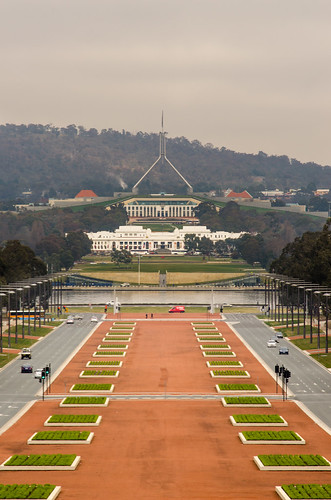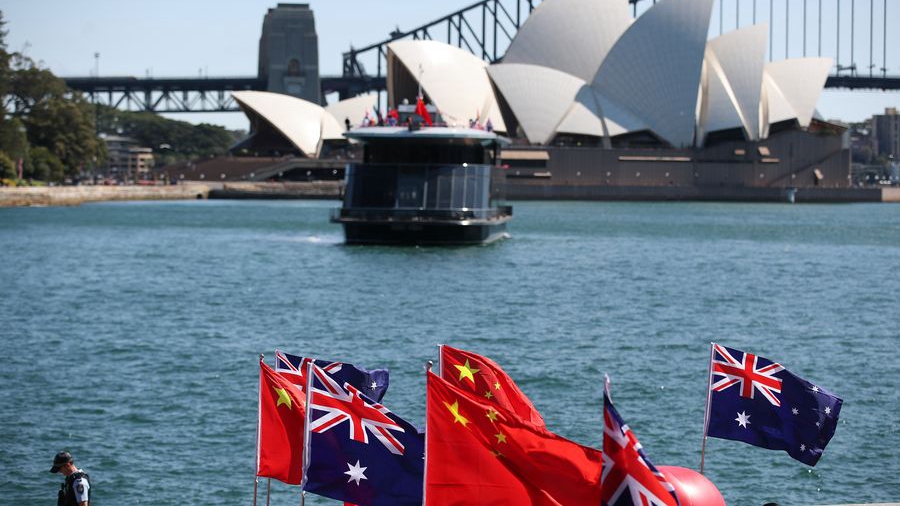No reason for Canberra to not boost relations: China Daily editorial
Canberra #Canberra

 The Chinese and Australian national flags in Sydney, Australia. [File photo/Xinhua]
The Chinese and Australian national flags in Sydney, Australia. [File photo/Xinhua]
Some Western media outlets describing as worrying the possible thawing of Sino-Australian ties, as indicated by the Australian government’s announcement that a senior defense official will attend the Beijing Xiangshan Forum, an international security forum, from Oct 29 to 31, suggests the United States-led West doesn’t want the normalization of Beijing-Canberra relations.
The fuss they are making over Canberra’s openness to security exchanges with Beijing exposes their anxiety, as if an Australian defense official’s presence in the forum — which Australia took part in before 2019 since when it had been suspended due to the COVID-19 pandemic — means betraying the “cause” of the US-led anti-China schemes to which Australia is a party.
Australia is a member of the US-led security partnerships and alliances such as Quad (along with the US, Japan India) and AUKUS (with the United States and the United Kingdom), the Five Eyes intelligence council, as well as the anti-China economic alliance — the “Indo-Pacific Economic Framework for Prosperity”.
To some diehard anti-China politicians in the US, Australia being the only non-US member in all the four partnerships should mean a quadruple insurance of Canberra’s loyalty to Washington’s China-containment strategy, making it the least likely country in the US camp to get close to China. As such, the efforts of the US and its allies to dissuade Australia from normalizing relations with China will intensify.
Those making a fuss about Australia’s decision to attend the security dialogue, which Australian Defense Minister Richard Marles said last week is important to understand each other and make “sure there’s no miscalculation”, should know that avoiding misjudgment accords with the interests of all parties. And importantly, defense and security exchanges in different forms and at different levels between China and the US, as well as other US allies including India and Japan, have not been halted all these years.
An important reason why the Anthony Albanese administration is seeking a new equilibrium between China and the US is that the path chosen by the preceding Scott Morrison administration is not sustainable, simply because Washington cannot find Canberra a new trading partner of the size of and as reliable as China.
Also, if Prime Minister Albanese visits China this year, a trip he said he was looking forward to, Sino-Australian relations will further stabilize. As China’s ambassador to Australia Xiao Qian said at a regional development forum in Melbourne last week, “China regards Australia as a friend. There is no reason for Australia to see China as a threat.”
Similarly, there is no reason for the two sides to not further expand their mutually beneficial cooperation. While doing so, they should properly handle their differences and not allow them to hinder the pace of their collaboration.